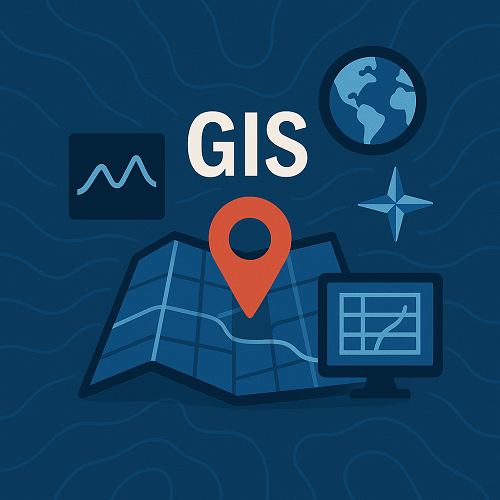Today, businesses of all sizes and industries are realizing the potential of GIS technology to revolutionize the way they operate. GIS or Geographic Information System is a specialized computer software designed to capture, store, analyze, and manage data pertaining to location. It is a powerful tool that offers a wealth of information to businesses and organizations of all types, enabling them to make faster and more informed decisions, increase efficiency, and achieve exponential success. In this article, we will discuss some of the game-changing applications of GIS technology that can help businesses take their operations to the next level.
1. Location-based marketing
GIS technology can help businesses to target and engage with their customers more effectively. By analyzing location data such as customer demographics, behaviors, and interests, businesses can create personalized marketing campaigns tailored to the needs and preferences of their target audience. This can result in higher engagement rates, increased customer loyalty, and improved sales.
2. Logistics and supply chain management
GIS technology can help businesses to optimize their logistics and supply chain operations. By analyzing real-time data on traffic, weather, and other variables, businesses can make informed decisions regarding the most efficient routes for delivery, inventory management, and warehousing. This can result in faster delivery times, reduced costs, and enhanced customer satisfaction.
3. Real estate and property management
GIS technology can help businesses to make informed decisions regarding real estate and property management. By analyzing location data such as zoning regulations, property values, and demographic trends, businesses can identify new growth opportunities, make more informed investment decisions, and maximize their return on investment.
4. Environmental management
GIS technology can also play a critical role in environmental management. By analyzing location data on factors such as air quality, water quality, and wildlife habitats, businesses can make informed decisions regarding their impact on the environment and take steps to minimize their carbon footprint. This can result in improved brand reputation, increased customer loyalty, and reduced operational costs.
5. Risk management and disaster response
Finally, GIS technology can help businesses to prepare for and respond to natural disasters and other emergencies. By analyzing location data such as flood zones, evacuation routes, and emergency shelters, businesses and emergency responders can plan and respond more effectively, minimizing damage to property and ensuring the safety and well-being of employees and the public.
In conclusion, GIS technology is a game-changing tool that can help businesses of all sizes and industries to achieve exponential success. By leveraging the power of GIS technology, businesses can improve their marketing strategies, optimize their logistics and supply chain operations, make informed investment decisions, minimize their impact on the environment, and respond more effectively to emergencies. As a result, businesses that embrace GIS technology are more likely to succeed in today’s fast-paced and ever-changing business world.
FAQs:
1. What is GIS technology?
A: GIS technology is a specialized computer software designed to capture, store, analyze, and manage data pertaining to location.
2. What are the benefits of GIS technology for businesses?
A: GIS technology can help businesses to make more informed decisions, increase efficiency, and achieve exponential success.
3. What industries can benefit from GIS technology?
A: GIS technology can benefit a wide range of industries, such as real estate, logistics, environmental management, and marketing.
4. How can businesses use GIS technology to improve their marketing efforts?
A: By analyzing location data such as customer demographics, behaviors, and interests, businesses can create personalized marketing campaigns tailored to the needs and preferences of their target audience.
5. How can GIS technology help businesses to respond to natural disasters and other emergencies?
A: By analyzing location data such as flood zones, evacuation routes, and emergency shelters, businesses and emergency responders can plan and respond more effectively, minimizing damage to property and ensuring the safety and well-being of employees and the public.
